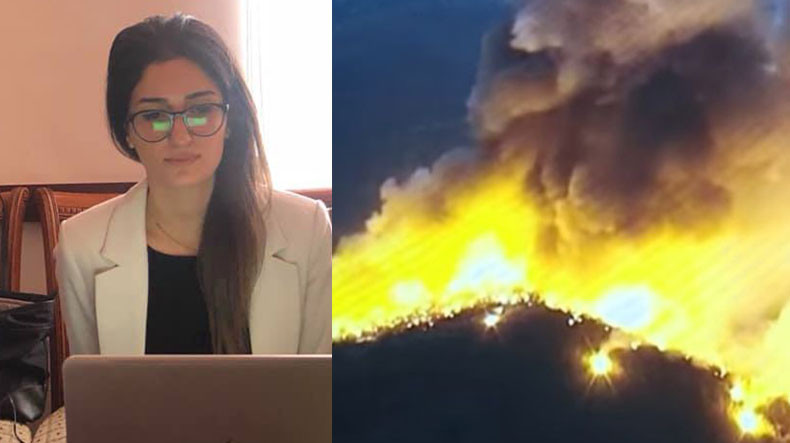
Expert: Azerbaijan's use of phosphorus munitions in Artsakh not only international crime, but also manifestation of its own powerlessness
The negative impact of war on the environment is an irrefutable fact. The term "ecocide" was first used at the UN environmental conference in Stockholm in 1972 to refer to the devastating effects of chemical weapons on the environment used in the Vietnam War. In the 1980s, studies by Vietnamese experts showed that only 10-30% of species of animals and birds survived in the poisoned forested areas.
During the summit, it was proposed to include "ecocide" in the list of crimes against peace, but it remained up in the air. Meanwhile, ecocides continue to date․․․
Panorama.am spoke with Nune Sakanyan, an environmental management specialist and the president of the Women in Climate and Energy (WiCE) NGO, about the ongoing ecocide in Artsakh and the need to raise awareness about it.
"The Armenian Highlands have been recognized by leading international environmental organizations as one of the world’s hotspots in terms of biodiversity. And the forested areas, which make up about 36% of the territory of Artsakh, are home to endangered species, which are listed on the local and international red lists, such as bald and white-headed eagles, grizzly bears, Caucasian leopards, etc. Today, environmentalists' joint alarm about the ecocide is aimed at preventing such crimes," said Nune Sakanyan, adding that Armenia is one of the few countries that has designated the ecocide as a crime.
"According to Armenia’s Criminal Code, deliberate mass destruction of flora and fauna, poisoning of lands and water resources, as well as other acts causing an ecological disaster are punished with imprisonment. And in this sense, it is not surprising that environmentalists alerted that on October 30, the Azerbaijani armed forces used incendiary weapons containing, most likely, white phosphorus in the forested regions of Artsakh. It can cause irreversible damage, from massive forest fires to air and water pollution, loss of biodiversity," Sakanyan said.
According to the expert, the military equipment used during the conflict and the intensity of the bombings, which we are witnessing, have a devastating and irreversible impact on the ecosystem and biodiversity. As for the use of white phosphorous munitions, he said:
"Phosphorus munitions threaten the existence of the natural environment, biodiversity and man. According to studies on the effects of white phosphorus weapons on the environment, burning in the air they produce toxic gases that cause both environmental pollution and adverse effects on the human respiratory system. White phosphorus has destructive effects on the environment, particularly on vegetation. According to preliminary data, more than 1,800 hectares of forested area of Artsakh were set on fire in two days. The continuous use of this weapon causes widespread damage in a short period of time, accumulating in the soil and rivers and causing pollution, which persists for many years. The agricultural crops produced in the areas are damaged.”
The use of chemical weapons changes the structure of the soil, causing erosion and depriving the population of the opportunity to use their own land. According to the expert, the war crimes against Artsakh, including the targeting of the civilian population, civilian infrastructure, as well as the ecocide, aim to create an environment where it will be simply impossible to live. This is an international environmental crime.
It turns out that Azerbaijan, out of its powerlessness to seize the lands of Artsakh, simply spoils them or tries to make them useless.
Related news
- Forests in Artsakh on fire due to Azerbaijan's use of white phosphorus munitions; Armenia applies to int'l organizations
- Azerbaijan uses incendiary rockets in almost all forested areas of Artsakh
- Forest cover of Artsakh’s Nngi village on fire due to Azerbaijan’s use of white phosphorus munitions
- Artsakh Defense Army: Azerbaijani forces used phosphorus munitions containing elements of chemical weapons
Newsfeed
Videos






























